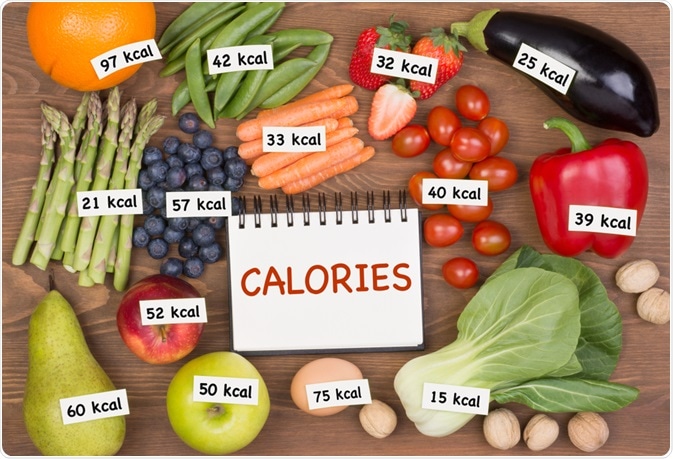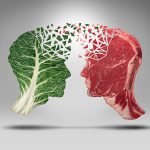
Imagine having a pressing event, an important occasion, or a personal goal just around the corner. You find yourself yearning to gain weight quickly in a week, hoping to achieve noticeable results in such a short timeframe.
In this article, we will explore the strategies and methods that can help you embark on a healthy weight gain journey within seven days. While rapid weight gain may seem arduous, it’s essential to approach it with a balanced mindset and realistic expectations.
So, fasten your seatbelts as we dive into a week-long adventure, uncovering the secrets to healthy weight gain and embracing the transformation ahead.
Understanding Healthy and Realistic Weight Gain

Gaining weight in a short span of one week is an enticing idea for those seeking immediate results. However, it’s important to approach this goal with a realistic perspective.
Healthy weight gain involves more than just a number on the scale; it encompasses nourishing your body and promoting overall well-being. While significant weight gain within a week may not be feasible or sustainable, it’s crucial to focus on adopting healthy habits that support long-term progress.
By understanding the limitations and setting realistic expectations, you can embark on a journey that prioritizes your health and allows you to make sustainable strides towards your weight gain goals. Sustainable progress and overall well-being are the pillars of a successful weight gain journey.
Optimizing Caloric Intake

Simply indulging in unhealthy, high-calorie foods won’t provide the nourishment your body needs. Instead, prioritize nutrient-dense options that fuel your body for optimal health and weight gain.
To increase your caloric intake, consider incorporating calorie-dense foods into your meals and snacks. Nut butter, such as almond or peanut butter, is rich in healthy fats and provides a significant calorie boost.
Avocados are another excellent choice, packed with healthy fats, fiber, and essential nutrients.
Incorporating healthy oils, such as olive oil or coconut oil, into your cooking and dressing can add extra calories to your meals without sacrificing nutritional value. Additionally, including nuts, seeds, and dried fruits in your diet can provide a satisfying energy boost.
While it’s important to increase your calorie intake, portion sizes should still be reasonable and balanced. Aim for frequent, smaller meals and snacks throughout the day to support your body’s energy needs. This can be achieved through proper meal planning.
Remember, healthy weight gain is not just about calories. Prioritizing nutrient-rich foods will ensure that you’re nourishing your body with essential vitamins, minerals, and macronutrients. Strive for a balanced approach that supports overall health while working towards your weight gain goals.
Focusing on Strength Training

Building muscle mass is a key component of healthy weight gain, even within a short timeframe. Strength training exercises not only promote muscle growth but also enhance overall body composition.
By incorporating targeted exercises into your routine, you can maximize your weight gain progress and achieve a more toned and sculpted physique.
During this one week, focus on compound exercises that engage multiple muscle groups simultaneously.
Squats, deadlifts, bench presses, and shoulder presses are excellent choices. These exercises activate major muscle groups like the legs, back, chest, and shoulders, stimulating growth and strength development.
To ensure effective results, aim for three to four strength training sessions throughout the week, allowing at least one day of rest between sessions to allow your muscles to recover and rebuild.
During each session, gradually increase the intensity and resistance over time, challenging your muscles to adapt and grow.
Remember to maintain proper form and technique during exercises to minimize the risk of injury. If you’re new to strength training, consider working with a qualified fitness professional to learn the proper technique and receive personalized guidance.
In addition to your resistance training sessions, don’t forget to incorporate adequate rest periods. Sleep is a crucial component of muscle recovery and growth, so aim for a minimum of seven to eight hours of quality sleep each night.
By combining targeted strength training exercises with proper rest and recovery, you can optimize your muscle growth potential within this one-week timeframe.
Prioritizing Rest and Recovery

While you may feel tempted to push yourself to the limit, neglecting proper rest can hinder your progress and potentially lead to burnout or injury.
Rest is not a sign of weakness; it is an essential component of any effective weight gain regimen. When you engage in strength training exercises, you create micro-tears in your muscles.
It is during rest periods that your body repairs and rebuilds these muscles, leading to growth and strength gains.
Make sleep a priority. Aim for a consistent sleep schedule and ensure you’re getting enough quality sleep each night. During sleep, your body releases growth hormones, which are vital for muscle repair and recovery.
Additionally, quality sleep helps regulate your appetite and hormone levels, supporting a healthy metabolism.
In addition to sleep, incorporate rest days into your workout routine. These days allow your muscles to recover, reducing the risk of overtraining and promoting better overall performance.
On rest days, engage in light activities such as stretching, walking, or practicing relaxation techniques to enhance circulation and promote recovery.
Furthermore, manage your stress levels effectively. High-stress levels can negatively impact your body’s ability to gain weight and recover properly. Explore stress-management techniques like meditation, deep breathing exercises, or engaging in activities that bring you joy and relaxation.
By prioritizing rest and recovery, you provide your body with the necessary time and conditions to adapt, grow, and optimize your weight gain efforts.
Monitoring Progress and Adjusting Strategies

Once you embark on your one-week weight gain journey, it’s essential to monitor your progress to ensure you’re on the right track and make necessary adjustments along the way.
While one week may not allow for significant changes, monitoring can still provide valuable insights and keep you motivated.
First and foremost, keep a record of your body weight at the beginning of the week and track it daily. Remember, the goal is to achieve healthy weight gain, so aim for a gradual increase rather than drastic fluctuations.
It’s important to note that weight can fluctuate due to various factors, including water retention and digestion, so focus on the overall trend rather than daily fluctuations.
In addition to tracking your weight, pay attention to how your body feels and looks. Notice any changes in muscle tone, energy levels, and overall well-being. These subjective measures can provide a holistic view of your progress.
If you find that your weight gain is not progressing as expected, don’t get discouraged. Instead, take a closer look at your caloric intake, exercise routine, and overall lifestyle factors.
Are you consistently consuming enough calories to support weight gain? Are you engaging in targeted strength training exercises? Are you allowing your body enough rest and recovery?
Based on your assessment, adjust your strategies accordingly. Increase your caloric intake if needed, modify your strength training routine, and prioritize adequate sleep and stress management. Remember, it’s all about finding the right balance that works for your body.
Seeking professional guidance from a registered dietitian or fitness expert can also be beneficial, as they can provide personalized advice tailored to your specific needs and goals.
Remember, sustainable and healthy weight gain takes time. Don’t be discouraged if you don’t see drastic changes within a week. Celebrate the small victories and continue to focus on nourishing your body and prioritizing your overall well-being.
The journey towards a stronger and healthier body is a marathon, not a sprint. Stay committed, be patient, and enjoy the process of self-improvement and self-discovery.
Conclusion
In conclusion, embarking on a journey to gain weight in a week requires a balanced and realistic approach. While the desire to see significant results quickly is understandable, it is important to prioritize your overall well-being throughout the process.
Rapid weight gain in such a short timeframe may not be feasible or healthy. Instead, focus on nourishing your body with nutrient-rich foods, increasing your caloric intake mindfully, incorporating strength training exercises, and prioritizing rest and recovery. Remember, sustainable progress takes time and consistency.
Embrace your unique weight gain journey, celebrate each small victory, and trust in the process. By adopting a healthy and balanced approach, you will not only achieve your weight gain goals but also enhance your overall health and well-being.


























